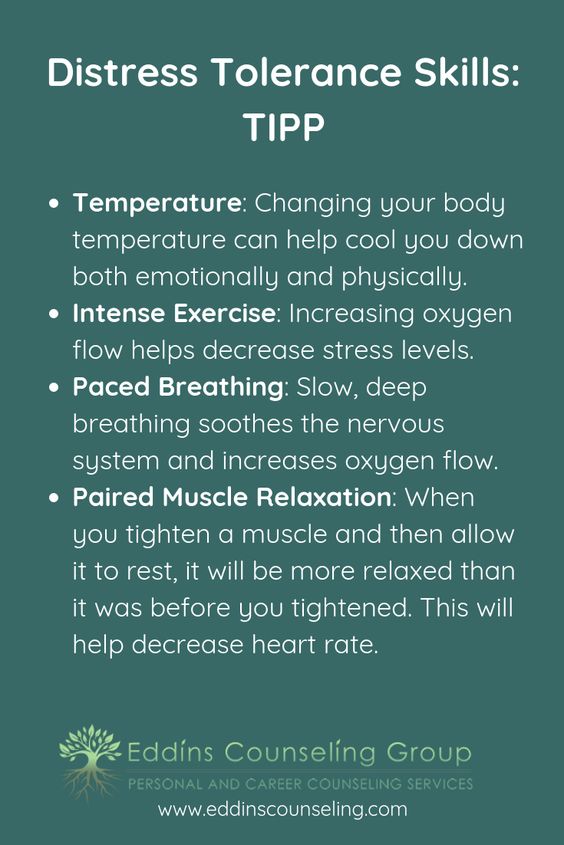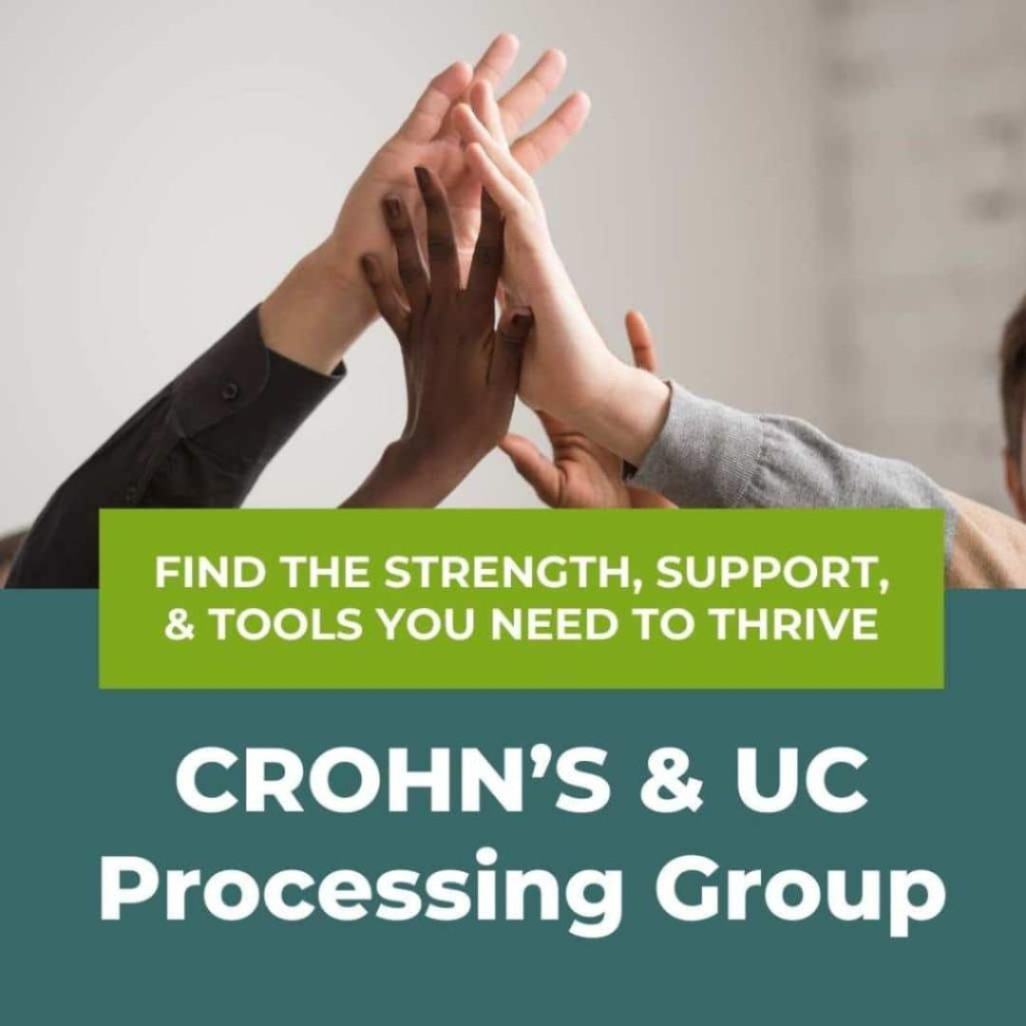August 6, 2018
Distress Tolerance Skills: Using TIPP During an Emotional Crisis
Written by Rachel Eddins
Posted in Emotional & Mental Health and with tags: DBT, emotion regulation

Have you ever felt as though your emotions are at a breaking point? Have you ever been in an emotional crisis and did not know how to handle the situation? Do you ever think “I wish I had some way to help manage my emotions”?
Dialectical Behavioral Therapy (DBT) skills can enhance your mental, emotional, and interpersonal well-being. One of DBT’s four main modules includes distress tolerance skills which are used to help cope in a crisis.
TIPP stands for Temperature, Intense exercise, Paced breathing, and Paired muscle relaxation. TIPP is a distress tolerance skill used to help those in a crisis. Crises can include anything from divorce or death to things like sitting in traffic or not knowing what to wear in a day. Distress tolerance skills like TIPP can help make the emotions during a crisis feel more manageable. Let’s start with:
Temperature
During a crisis, our body tends to feel hot. Changing your body temperature by splashing cold water on your face, standing in front of the AC, squeezing an ice cube, or eating/drinking something cold can help cool you down both emotionally and physically.
Intense Exercise
Doing an intense activity to match your feelings can help give an outlet to excess anxious energy. You don’t have to be an Olympian- you can run around the block, do jumping jacks until you are worn out, or run up an down some stairs. Increasing oxygen flow helps decrease stress levels.
Paced Breathing
Slow, deep breathing soothes the nervous system and increases oxygen flow. The key is to breathe out longer than you are breathing in. There are many different breathing techniques and everyone swears that theirs’ is the most effective one- so just pick one that works for you.
Paired Muscle Relaxation
When you tighten a muscle and then allow it to rest, it will be more relaxed than it was before you tightened it. Relaxed muscles require less oxygen, so your heart rate and breathing will naturally slow down. Muscle relaxation also helps with being mindfully aware of your body- which is another big module in DBT.

Learn Distress Tolerance Skills with a Therapist
Eddins Counseling Group, located in Houston, has many qualified therapists that can teach you distress tolerance skills. We also facilitate a DBT Skills Group for adults and a Teen DBT Group for teenagers between the ages of 14-19. DBT treatment has also shown to be effective in helping with: depression, self-harm, anxiety, trauma & PTSD, eating disorders, alcohol/drug addiction, suicidal thoughts/urges, and many other areas in which you may feel stuck.
Contact us at 832-559-2622 for more information or book an appointment online.
Grounding & Self Soothing
Get instant access to your free ebook.
Why You Feel This Way
Get instant access to your free ebook.




























